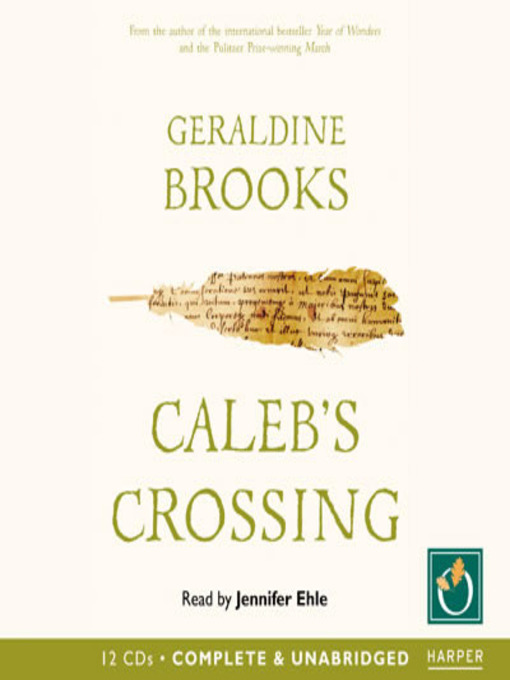
Caleb's Crossing
کتاب های مرتبط
- اطلاعات
- نقد و بررسی
- دیدگاه کاربران
نقد و بررسی

March 14, 2011
Pulitzer Prizeâwinner Brooks (for March) delivers a splendid historical inspired by Caleb Cheeshahteaumauck, the first Native American to graduate from Harvard. Brooks brings the 1660s to life with evocative period detail, intriguing characters, and a compelling story narrated by Bethia Mayfield, the outspoken daughter of a Calvinist preacher. While exploring the island now known as Martha's Vineyard, Bethia meets Caleb, a Wampanoag native to the island, and they become close, clandestine friends. After Caleb loses most of his family to smallpox, he begins to study under the tutelage of Bethia's father. Since Bethia isn't allowed to pursue education herself, she eavesdrops on Caleb's and her own brother's lessons. Caleb is a gifted scholar who eventually travels, along with Bethia's brother, to Cambridge to continue his education. Bethia tags along and her descriptions of 17th-century Cambridge and Harvard are as entertaining as they are enlightening (Harvard was founded by Puritans to educate the "English and Indian youth of this country," for instance). With Harvard expected to graduate a second Martha's Vineyard Wampanoag Indian this year, almost three and a half centuries after Caleb, the novel's publication is particularly timely.

Brooks's fourth work of historical fiction vividly animates the life of Caleb Cheeshahteaumauk, the first Native American graduate of Harvard. The period detail and the compelling viewpoint of Bethia Mayfield are strengthened by Jennifer Ehle's narration. Ehle's emphasis on the seventeenth-century word choices and grammatical structure creates a lyrical presentation. Equally strong is the portrait she draws of Bethia, a young woman who, like Caleb, has a strong intelligence and is as challenged by gender bias as he is by racial prejudice. Ehle captures the heroine's passion for learning as well as her indignation and resignation in the face of unfair treatment--her own and that of her admired childhood friend, Caleb. The combination of Brooks's writing and Ehle's narration creates a powerful rendition of what Bethia calls her "tragical lament." S.W. (c) AudioFile 2011, Portland, Maine

























دیدگاه کاربران